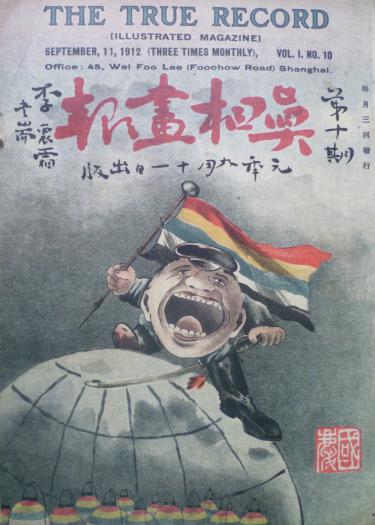Centre for Asian and Transcultural Studies Rosicrucian Apocalypticism and Freemasonry: On the Mystical Sources of Modern Political Thought
- Termin in der Vergangenheit
- Donnerstag, 14. November 2024, 14:30 - 16:00 Uhr
- Centre for Asian and Transcultural Studies (CATS), 010.01.05 (CATS Auditorium), Voßstraße 2, 69115 Heidelberg
- Dr Cristina Ciucu, Ecole des hautes études en sciences sociales (France)
The conviction that a transmutation of the worldview inexorably leads to the metamorphosis of the socio-political reality lies at the foundation of the philosophical Renaissance, such as formulated by Pico della Mirandola in his De hominis dignitate and Conclusiones (1486). This world-shattering project, reuniting mystical theology, Platonism, Kabbalah, Hermeticism and Messianism, nurtures a profusion of ethical-political treatises (‘utopias’) and urges for creative strategies of dissemination. The Rosicrucian Fraternity and its subsequent Freemasonic adaptations epitomise the most original among these strategies, and will serve as a case study for manner in which apocalyptical and mystical elements become a revolutionary driving force.

Adresse
Centre for Asian and Transcultural Studies (CATS)
010.01.05 (CATS Auditorium)
Voßstraße 2
69115 HeidelbergVeranstalter
Veranstaltungstyp
Veranstaltungsreihe
Vortrag
Alle Termine der Veranstaltung 'Apocalypse Now. Time, Historicity and Worlds After'
Lecture Series
While periodization — the partition of time into segments with a specific beginning and end — is integral to historical method, it cannot be dissociated from a wider reflection on a key issue: the relation between emic time (time as perceived by historical actors) and etic time (time as established by the scholar’s historical narrative). The relation between emic and etic times is an essential methodological question within human, social, and even natural sciences. This lecture series looks at this this question through a particular lens: the “end of times” or “apocalypses.” How do historical actors perceive it? What happens to historiographical narratives when actors talk about the future as the “end” of time? How has such a vision of the future shaped narratives and periodization schemes?
By focusing on “ends of times” and “apocalypse”, the tensions between time, temporalities and time horizons are to be discussed, both methodologically and empirically, in specific contexts. The three main areas are: 1) political history — the history of revolutions; 2) religious history — the history of last judgements and revelations; and 3) natural history — the history of pandemics, cataclysms and disasters. The first block (political history) will discuss the link between revolution and the end of time, starting with revolutions at the turn of the eighteenth and nineteenth centuries, including the Russian and Chinese revolutions. The second block (religious history) will consider perceptions of the end of time within some of the main religions, considering different takes on apocalyptic revelations, universal floods, millenarianisms and messianic movements. Finally, the third block (natural history) will discuss natural disasters and epidemics, and will feature the controversies over geological eras (such as the Anthropocene) and collapsology.